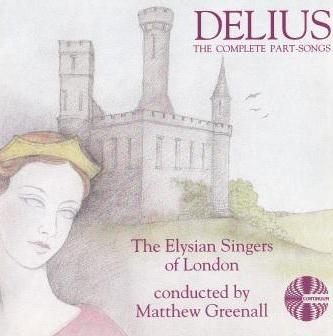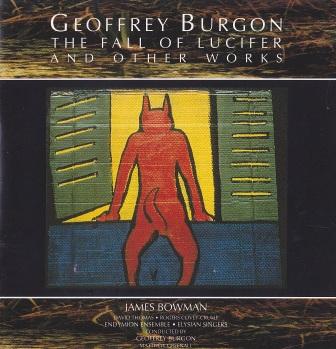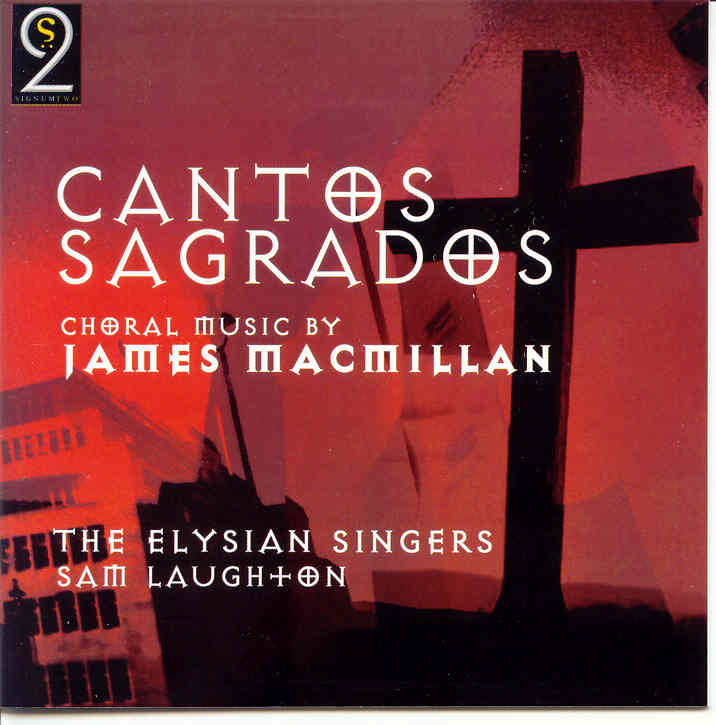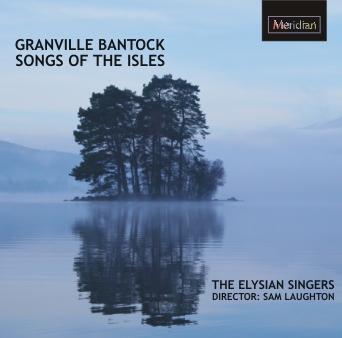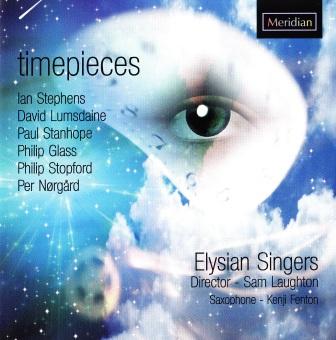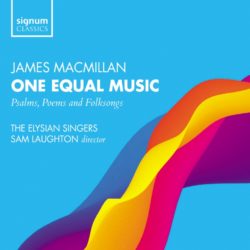1. On the Underground (Set 2) – Thea Musgrave
I. Dreams (Words by Robert Herrick)
Here we are all, by day;
By night we are hurled by dreams each one into a several world.
II. I saw a peacock with a fiery tail (Words anonymous 17th century)
I saw a peacock with a fiery tail
I saw blazing comet drop down hail
I saw a cloud with ivy circled around
I saw a sturdy oak creep on the ground
I saw a pismire* swallow up a whale
I saw a raging sea brimfull of ale
I saw a Venice glass sixteen foot deep
I saw a well full of men’s tears that weep
I saw their eyes all in a flame of fire
I saw a house as big as the moon and higher
I saw the sun even in the midst of night
I saw the man that saw this wondrous sight.
* pismire = ant
III. The Subway Piranhas (Words by Edwin Morgan)
Did anyone tell you that in each subway train
There is one special seat with a small hole in it?
And underneath the seat is a tank of piranha fish
Which have not been fed for quite some time.
The fish become agitated by the shoogling of the train
And jump up through the seat.
The resulting skeletons turn an honest penny
For the transport executive
Hanging far and wide in medical schools.
IV. Dreams (Reprise)
Here we are all, by day;
By night we are hurled by dreams each one into a several world
2,3. Two songs – Paul Hindemith (Words by Maria Rilke)
I. La Biche (The Doe)
O thou doe, what vistas of secular forests appear in thine eyes reflected!
What confidence serene affected by transient shades,
By shades of fear.
And it all is borne on thy bounding course, for so gracile art thou!
Nor comes aught to astound the impassive profound unawareness of thy brow.
II. Un Cygne (A Swan)
A swan is breasting the flow
All in himself enfolded
Like a slow-moving tableau;
And so, at some time or place,
A loved one will be moulded to seem like a migrating space;
Will near us, floating redoubled as a swan on the river.
Upon our soul so troubled,
Which swells it by the addition of a wraith aquiver
With delight and suspicion.
4. Il bianco e dolce cigno – Jacques Arcadelt (Words anonymous)
The sweet white swan while singing dies and I while weeping come to my life’s end. Oh strange and diverse fate! For he dies disconsolate and I die a blessed death which as I die fills me completely with joy and desire. If in dying I feel no other grief, I should be glad to die a thousand deaths a day.
5. The Silver Swan – Orlando Gibbons (Words anonymous)
The silver swan, who, living had no note,
When death approached, unlocked her silent throat;
Leaning her breast against the reedy shore,
Thus sang her first and last, and sang no more.
Farewell all joys, O death, come close mine eyes;
More geese than swans now live, more fools than wise.
6. O magnum mysterium – Peter Maxwell Davies (Words anonymous)
Oh, great mystery, and marvellous sacrament,
That the beasts should have seen our Lord lying in a manger!
7,8,9. Choristers of Flight – Alan Bullard
I. The Darkling Thrush (Words by Thomas Hardy)
I leant upon a coppice gate
When Frost was spectre-gray,
And Winter’s dregs made desolate
The weakening eye of day,
The tangled bine-stems scored the sky
Like strings of broken lyres
And all mankind that haunted nigh
Had sought their household fires.
The land’s sharp features seem’d to be
The Century’s corpse outleant
His crypt the cloudy canopy,
The wind his death lament.
The ancient pulse of germ and birth
Was shrunken hard and dry,
And every spirit upon earth
Seem’d fervourless as I.
At once a voice arose among
The bleak twigs overhead
In a full-hearted evensong
Of joy illimited;
An aged thrush, frail, gaunt, and small
In blast-beruffled plume,
Had chosen thus to fling his soul
Upon the growing gloom.
So little cause for carollings
Of such ecstatic sound
Was written on terrestrial things
Afar or nigh around,
That I could think there trembled through
His happy good-night air
Some blessed Hope, whereof he knew
And I was unaware
II. The Windhover (Words by Gerald Manley Hopkins)
I caught this morning morning’s minion, king-
dom of daylight’s dauphin, dapple-dawn-drawn Falcon, in his riding
Of the rolling level underneath him steady air, and striding
High there, how he rung upon the rein of a wimpling wing
In his ecstasy! then off, off forth on swing,
As a skate’s heel sweeps smooth on a bow-bend; the hurl and gliding
Rebuffed the big wind. My heart in hiding
Stirred for a bird, – the achieve of, the mastery of the thing!
Brute beauty and valour and act, oh, air, pride, plume, here
Buckle! AND the fire that breaks from thee then, a billion
Times told lovelier, more dangerous. O my chevalier!
No wonder of it: sheer plod makes plough down sillion
Shine, and blue-bleak embers, ah my dear,
Fall, gall themselves, and gash gold-vermilion.
III. from November (Words by Robert Bridges)
The lonely season in lonely lands, when fled
Are half the birds, and mists lie low, and the sun
Is rarely seen, nor strayeth far from his bed;
The short days pass unwelcomed one by one.
(……)
And now, if the night shall be cold, across the sky
Linnets and twites, in small flocks helter skelter,
All the afternoon to the gardens fly,
From thistle pastures hurrying to gain the shelter
Of American rhododendron or cherry-laurel:
And here and there, near chilly setting of sun,
In an isolated tree a congregation
Of starlings chatter and chide,
Thickset as summer leaves, in garrulous quarrel:
Suddenly they hush as one, –
The tree top springs, –
And off, with a whirr of wings,
They fly by the score
To the holly-thicket, and there with myriads more
Dispute for the roosts; and from the unseen nation
A babel of tongues, like running water unceasing,
Makes live the wood, the flocking cries increasing,
Wrangling discordantly, incessantly,
While falls the night on them self-occupied;
The long dark night, that lengthens slow,
Deepening with Winter to starve grass and tree,
And soon to bury in snow
The Earth, that, sleeping ’neath her frozen stole,
Shall dream a dream crept from the sunless pole
Of how her end shall be.
10. Sweet Suffolk Owl – Thomas Vautor (Words anonymous)
Sweet Suffolk Owl
So trimly dight with feathers like a lady bright
Thou singst alone sitting by night
Te whit te whoo te whit te whoo
Thy note which forth so freely rolls
With shrill command the mouse controls
And sings a dirge for dying souls
Te whit te whoo te whit te whoo
11. The Bluebird – CharlesVilliers Stanford (Words by Mary E. Coleridge)
The lake lay blue below the hill
O’er it, as I looked, there flew
Across the waters cold and still
A bird whose wings were palest blue.
The sky above was blue at last
The sky beneath me blue in blue
A moment ere the bird had passed
It caught his image as he flew.
12. The Lamb – John Tavener (Words by William Blake)
Little Lamb, who made thee?
Dost thou know who made thee?
Gave thee life, and bid thee feed
By the stream and o’er the mead;
Gave thee clothing of delight,
Softest clothing, woolly, bright;
Gave thee such a tender voice,
Making all the vales rejoice?
Little Lamb, who made thee?
Dost thou know who made thee?
Little Lamb, I’ll tell thee;
Little Lamb, I’ll tell thee:
He is called by thy name,
For he calls himself a Lamb.
He is meek, and he is mild;
He became a little child.
I, a child, and thou a lamb,
We are called by his name.
Little Lamb, God bless thee!
Little Lamb, God bless thee!
13. Nightingales – Gerald Finzi (Words by Robert Bridges)
Beautiful must be the mountains whence ye come,
And bright in the fruitful valleys the streams, wherefrom
Ye learn your song:
Where are those starry woods? O might I wander there,
Among the flowers, which in that heavenly air
Bloom the year long!
Nay, barren are those mountains and spent the streams:
Our song is the voice of desire, that haunts our dreams,
A throe of the heart,
Whose pining visions dim, forbidden hopes profound,
No dying cadence nor long sigh can sound,
For all our art.
Alone, aloud, in the raptured ear of men
We pour our dark nocturnal secret; and then,
As night is withdrawn
From these sweet-springing meads and bursting boughs of May,
Dream, while the innumerable choir of day
Welcome the dawn.
14,15,16. Trois Chansons – Maurice Ravel (Words also by Ravel)
I. Nicolette
Nicolette, at evening song, went a-roaming in the field,
To pick starry white daisies, bright jonquils and May lilies.
Merrily was skipping, listlessly was tripping,
Glancing here, there, and everywhere.
Growling old wolf came to pass, bristling haired, sparkling eyed:
Stay! Stay! my Nicolette, to grandmother wilt thou come?
Away till quite breathless fled poor Nicolette,
Letting fall mob cap and white clog shoes
Gentle page came then hereby, with blue hose and doublet grey:
Stay! Stay! sweet Nicolette, wilt thou have a lover true?
Wise from him turned away poor Nicolette,
Reluctantly, sore at heart.
Last met she grey haired Lord, ugly, wry, vile, corpulent:
Stay! Stay! my Nicolette, all this gold I give to thee!
Swiftly ran into his arms our good Nicolette,
Back to the field no more has she come.
II. Trois beaux oiseaux du Paradis
Three lovely birds from Paradise,
(My beloved is to the fighting gone)
Have flown along this way.
The first was bluer than Heaven’s blue,
(My beloved is to the fighting gone)
The second white as the fallen snow,
The third was wrapt in bright red glow.
Ye lovely birds from Paradise,
(My beloved is to the fighting gone)
Ye lovely birds from paradise
What bring ye then this way?
I bring to thee a glance of azure.
(Thy beloved is to the fighting gone)
And I on fairest snow white brow,
A fond kiss must leave, yet purer still.
Thou bright red bird from Paradise,
(My beloved is to the fighting gone)
What bringest thou to me?
A faithful heart all crimson red.
(Thy beloved is to the fighting gone)
Ah! I feel my heart growing cold…
Take it also with thee.
III. Ronde (Roundelay)
Go not to the woods of Ormonde,
Maidens beware, go not to the woods;
They are full of grim satyres, and of centaurs,
Of cunning wizards, of hobgoblins and of incubi,
Imps and ogres there hide,
Will o’ the wisps and fauns, roguish lamies,
Flying devils, devilkins,
Goat-footed folk and gnomes and demons,
Full of werewolves, elves, tiny myrmidons,
Of enchanters and of magicians, stryges and of sylphs,
Full of outcast monks, of cyclopses and of djinns,
Goblins, korrigans, necromancers, kobolds…
Go not to the woods of Ormonde,
Young lads beware, go not to the woods;
They are hiding hosts of fauns, and of bacchantes
And of fairy folks,
Of satyres and ogresses, and of babaiagas,
Of centauresses and of she-devils, witches out from their sabbath,
Of she-hobgoblins, of female demons
Of larves and of nymphs, tiny myrmidons,
Of hamadryads and dryads, of naiads,
Menades, thyades, will o’ the wisps,
Of lemurs, female gnomes, succubi,
Of gorgons and she-goblins…
We shall go no more to the woods of Ormonde,
Alas, never more shall we go there.
There are no more grim satyres, and no more nymphs,
Fairy folk have fled.
Gone are the hobgoblins and incubi,
No more ogres, no more imps,
Fauns or will o’ the wisps, no more furies,
Flying devils, devilkins,
Goat-footed folk, no more gnomes or demons,
No more werewolves, elves, imps and myrmidons,
No enchanters or magicians or stryges,
No more sylphs or outcast monks,
No more cyclopses or djinns, little devils,
Efrits, aegypans or sylvans, goblins,
Korrigans, necromancers, kobolds.
Ill-advised old women, ill-advised old men
Frightened them all away – Ah!

